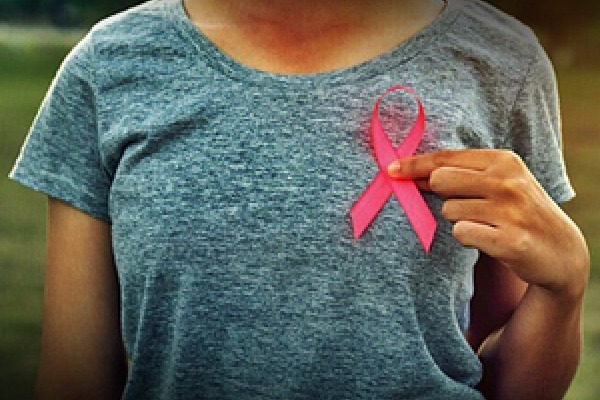New studies show encouraging outcomes for breast cancer patients

New York, Sep 15 : Three new studies on Sunday showed how post-treatment lifestyle choices shape long-term outcomes after diagnosis of breast cancer.
The studies, led by Dana-Farber Cancer Institute researchers in the US, have encouraging implications for patients with breast cancer.
Two studies focused on breastfeeding after breast cancer diagnosis and treatment.
These found it was safe and feasible for young patients carrying specific genetic variations to breastfeed without raising their risk of a cancer recurrence or a cancer in the other breast, and that it was safe and feasible to breastfeed for patients with hormone receptor-positive (HR ) breast cancer who conceived after a temporary interruption of endocrine therapy.
The third study showed that a telephone-based coaching programme can significantly increase physical activity in overweight patients, potentially improving their outcomes.
The studies were presented at the ‘European Society of Medical Oncology (ESMO) Congress 2024’ in Barcelona, Spain.
The first study was a collaboration among investigators at 78 hospitals and cancer treatment centres worldwide. It involved 474 patients with inherited mutations in the cancer-susceptibility genes BRCA1 or BRCA2 who became pregnant after being diagnosed with stage I-III invasive breast cancer at age 40 or younger.
The second study provides breastfeeding outcomes from the POSITIVE trial which demonstrated early safety of the temporary interruption of endocrine therapy to attempt pregnancy. A key secondary endpoint was breastfeeding outcomes.
The study involved 518 patients at age 42 or younger with HR , stage I-III breast cancer.
Of these patients, 317 went on to have a live birth and 196 chose to breastfeed. Breast conserving surgery was a key factor favoring breastfeeding.
"These studies provide the first evidence on the safety of breastfeeding after breast cancer in both young patients carrying BRCA variations that predispose to breast cancer, as well as patients who conceived after pausing endocrine therapy" said Ann Partridge, the founder and director of the Programme for Young Adults with Breast Cancer at Dana-Farber.
The findings emphasise the possibility of supporting maternal and infant needs without compromising maternal safety.
The third study drew on data from the Breast Cancer Weight Loss (BWEL) trial, which is exploring whether participating in a weight loss programme after a breast cancer diagnosis can reduce the risk of cancer recurrence in women with a body mass index (BMI) in the overweight or obese range.
"Our results show that a telephone-based weight-loss intervention can motivate this group of patients to be more physically active," said the study's first author, Jennifer Ligibel.
The studies, led by Dana-Farber Cancer Institute researchers in the US, have encouraging implications for patients with breast cancer.
Two studies focused on breastfeeding after breast cancer diagnosis and treatment.
These found it was safe and feasible for young patients carrying specific genetic variations to breastfeed without raising their risk of a cancer recurrence or a cancer in the other breast, and that it was safe and feasible to breastfeed for patients with hormone receptor-positive (HR ) breast cancer who conceived after a temporary interruption of endocrine therapy.
The third study showed that a telephone-based coaching programme can significantly increase physical activity in overweight patients, potentially improving their outcomes.
The studies were presented at the ‘European Society of Medical Oncology (ESMO) Congress 2024’ in Barcelona, Spain.
The first study was a collaboration among investigators at 78 hospitals and cancer treatment centres worldwide. It involved 474 patients with inherited mutations in the cancer-susceptibility genes BRCA1 or BRCA2 who became pregnant after being diagnosed with stage I-III invasive breast cancer at age 40 or younger.
The second study provides breastfeeding outcomes from the POSITIVE trial which demonstrated early safety of the temporary interruption of endocrine therapy to attempt pregnancy. A key secondary endpoint was breastfeeding outcomes.
The study involved 518 patients at age 42 or younger with HR , stage I-III breast cancer.
Of these patients, 317 went on to have a live birth and 196 chose to breastfeed. Breast conserving surgery was a key factor favoring breastfeeding.
"These studies provide the first evidence on the safety of breastfeeding after breast cancer in both young patients carrying BRCA variations that predispose to breast cancer, as well as patients who conceived after pausing endocrine therapy" said Ann Partridge, the founder and director of the Programme for Young Adults with Breast Cancer at Dana-Farber.
The findings emphasise the possibility of supporting maternal and infant needs without compromising maternal safety.
The third study drew on data from the Breast Cancer Weight Loss (BWEL) trial, which is exploring whether participating in a weight loss programme after a breast cancer diagnosis can reduce the risk of cancer recurrence in women with a body mass index (BMI) in the overweight or obese range.
"Our results show that a telephone-based weight-loss intervention can motivate this group of patients to be more physically active," said the study's first author, Jennifer Ligibel.